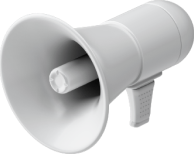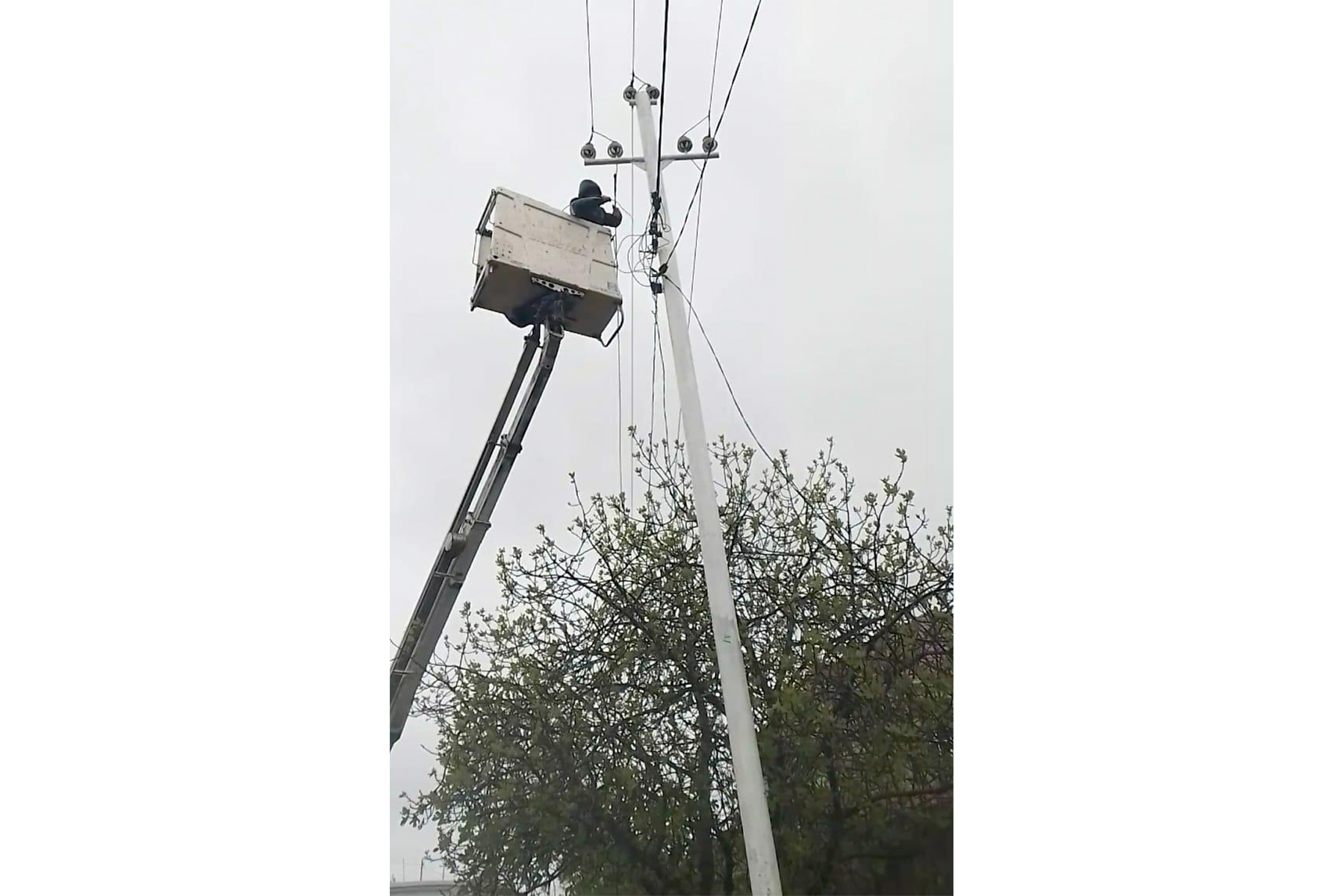Tədris və İnnovasiyalar Mərkəzi
Məlumat
- Elektron Məlumat Bazası
- Planlı fasilələr
- Qeyri-əhali İstehlakçıları
- Perspektiv inkişaf
- Əhali İstehlakçıları
- Kommunikasiya Strategiyası
- İctimai Nəzarət
- SCADA sistemi
- Tarif Şurasının Qərarları
- ETŞ qoşulmalar üzrə aparılan sorğunun hesabatı
- Təhlükəsizlik
- Keyfiyyət Göstəriciləri
- Daxili Qaydalar
- Sizin suallarınız
- Elektron müraciətin statusu
Enerji istehlakı
Xidmətlər
Əlaqə
Təkliflər və şikayətlər
Şəbəkəyə qoşulma
“Azərişıq” ASC ölkə ərazisində güclü külək və yağışın yaratdığı qəzaları aradan qaldırmaq üçün fasiləsiz çalışır
Ölkə ərazisində 15 aprel tarixindən başlayan kəskin hava şəraiti demək olar ki, bütün regionlarda elektrik təsərrüfatında lokal xarakterli qəza hallarının yaranmasına səbəb olub. Leysan xarakterli intensiv yağış və güclü külək nəticəsində aşan ağac və kənar əşyaların elektrik xətlərini zədələməsi bəzi ərazilərdə e...
Ətraflı“Azərişıq” ASC-nin sədri Vüqar Əhmədov Neftçalada vətəndaşları qəbul edib
“Azərişıq” ASC paytaxt və regionlarda yenidənqurma və əsaslı təmir işlərinin aparılmasına paralel olaraq maarifləndirici tədbirlər keçirir, bölgələrdə yerli sakinlərlə görüşlər təşkil edir. Cənab Prezident İlham Əliyevin vətəndaşların şəhər və rayonlarda qəbulunun keçirilməsinə dair tapşırığına uyğun olaraq ...
Ətraflı“Azərişıq” ASC-nin nümayəndələri Sabirabadda sahibkarlarla görüşüb
"Azərişıq” ASC fermer, sahibkar və vətəndaşların rahat fəaliyyəti, yaranan çətinliklərin aradan qaldırılması məqsədilə regionlarda mütəmadi görüşlər təşkil edir, onların fikirləri, təklifləri, tövsiyələri dinlənilir. Cənab Prezident İlham Əliyevin tapşırıqlarına əsasən həyata keçirilən belə tədbirlərdən ...
Ətraflı“Azərişıq” ASC Cəlilabad və Masallının bir sıra kəndlərində elektrik təsərrüfatını yeniləyir
Cənab Prezident İlham Əliyevin tapşırıqlarına əsasən vətəndaşların dayanıqlı və fasiləsiz elektrik enerjisi ilə təmin olunması məqsədilə “Azərişıq” ASC paytaxt və regionlarda yenidənqurma işlərini davam etdirir. Cəlilabad və Masallının bir sıra kəndlərində də elektrik şəbəkəsi tamamilə yenilənir. Cəlilabad rayonunun 3 kəndində &nd...
Ətraflı“Azərişıq” ASC-nin sədri Vüqar Əhmədov Zərdabda vətəndaşları qəbul edib
Cənab Prezident İlham Əliyevin vətəndaşların şəhər və rayonlarda qəbulunun keçirilməsinə dair tapşırığına uyğun olaraq “Azərişıq” ASC-nin sədri Vüqar Əhmədov martın 14-də Zərdabda yerləşən Heydər Əliyev Mərkəzində Zərdab və Ucar rayonlarından olan vətəndaşlarla görüşüb. Qəbul mərkəzi icra hakimiyyəti orqanları...
Ətraflı“Azərişıq” ASC İmişli və Beyləqan rayonlarının elektrik təsərrüfatını yeniləyir
“Azərişıq” ASC regionların elektrik təsərrüfatının yenilənməsi məqsədilə quruculuq və əsaslı təmir-bərpa işlərinə davam edir. Cənab Prezident İlham Əliyevin tapşırıqlarına əsasən həyata keçirilən yenidənqurma işləri çərçivəsində İmişli və Beyləqan rayonlarının bir sıra ərazilərində köhnəlmiş elektrik təsər...
Ətraflı“Azərişıq” ASC-nin nümayəndələri İmişlidə fermer və sahibkarlarla görüş keçirib
“Azərişıq” ASC paytaxt və regionlarda elektrik təsərrüfatının yenilənməsi işləri ilə yanaşı maarifləndirici tədbirləri də davam etdirir. Fermer, sahibkar və vətəndaşların rahat fəaliyyəti, yaranan çətinliklərin aradan qaldırılması məqsədilə bölgələrdə mütəmadi görüşlər keçirilir, onların fikirləri,...
Ətraflı“AzərEnerji” ASC və "Azərişıq" ASC-nin rəhbər heyəti, əməkdaşları Xocalı soyqırımı abidəsini ziyarət edib
Xocalı faciəsinin 33-cü ildönümü ilə əlaqədar fevralın 26-da “AzərEnerji” ASC və “Azərişıq” ASC-nin kollektivi Xətai rayonunda soyqırımı qurbanlarının xatirəsinə ucaldılmış "Ana harayı" abidəsini ziyarət ediblər. Abidənin önünə gül dəstələri düzülüb, faciə qurbanlar...
Ətraflı“Azərişıq” ASC “ASAN xidmət indeksi”nin qiymətləndirmə tarixində 99.60% nəticə əldə edərək öz rekordunu yeniləyib
24 fevral 2025-ci il tarixində “ASAN xidmət indeksi” üzrə 2024-cü il qiymətləndirmə nəticələrinə dair təqdimat keçirilib. Tədbirdə Azərbaycan Respublikasının Prezidenti yanında Vətəndaşlara Xidmət və Sosial İnnovasiyalar üzrə Dövlət Agentliyinin, “Azərişıq” ASC-nin və müxtəlif qurumların rəhbə...
ƏtraflıAzərbaycan Respublikasının Prezidenti İlham Əliyev fevralın 18-də “Azərişıq” Açıq Səhmdar Cəmiyyətinin (ASC) Ağdam Regional Rəqəmsal İdarəetmə Mərkəzi və Təlim-Tədris Kompleksinin açılışında iştirak edib.
“Azərişıq” ASC-nin sədri Vüqar Əhmədov dövlətimizin başçısına Mərkəzdə görülən işlər barədə məlumat verdi.Qeyd edək ki, Prezident İlham Əliyevin tapşırıqlarına uyğun olaraq, Azərbaycanın işğaldan azad edilən ərazilərində elektrik şəbəkələrinin qəza vəziyyətindən çıxarılması, enerji təhlükəsizliyini...
ƏtraflıElektron xidmətlər
Elektron bildiriş al
Əlaqə məlumatlarınızı daxil edərək elektron bildiriş sistemində qeyd olun və bildirişlər aylıq olaraq sizə gələcək.
E-bildiriş al
Qəza ilə bağlı məlumat ver
Baş vermiş qəza hallarını bizə məlumat verərək problemin tez bir zamanda həllinə kömək edin
Məlumat ver
Elektrik borcunu öyrən
MTK-ların enerji təchizatı şəbəkələrinə qoşulması barədə məlumat
Ətraflı
Sorğu
Xəbərlər
Bütün XəbərlərQalereya
Bütün qalereyaFaydalı linklər
Bizimlə əlaqə
Axtardığınız ərazi üzrə Enerji Təchizatı və Satışı İdarəsini (RETSİ) artıq asanlıqla tapa bilərsiniz. Aşağıdakı seçimdən sizə lazım olan RETSİ seçin və müvafiq məlumatlarla tanış olun
Sualınız var? Bizə yazın
Elektron müraciəti yoxla
E-müraciətin statusu
Sizin müraciətiniz hal-hazırda aşağıdakı mərhələdədir:
- 1
- 2
- 3
- 4
- Mühəndisin qeydləri
- Ödəniş məlumatları
- Elektrik quraşdırma
- Sayğac quraşdırma
 | Ş.V nömrəsi: Qeydiyyat ünvanı: ASAN Növbə FİN kodu: |
| Müraciət No: | |
| Müraciət tarixi: | |
| Obyektin ünvanı: | |
| Obyektin tipi: | |
| Reyestr nömrəsi: | |
| Qeydiyyat nömrəsi: | |
| Əlavə: | |
| E-müraciətin statusu |
E-müraciətin statusu
| Müraciət nömrəsi | |
| Ad | |
| Soyad | |
| Ata adı | |
| Abonent kodu | |
| Şirkət adı | |
| VÖEN | |
| Kateqoriya | |
| Cari status |
Elektron bildiriş sistemi
Elektron bildiriş sistemində qeydiyyat
Qeydiyyat
Elektron bildiriş sistemində məlumatlarınız
Məlumatlar

| Müqavilə No: | |
| Abunə kodu: | |
| Adı, soyadı: | |
| Ünvanı: | |
| Sayğac No: | |
| Son göstərici: | |
| Əvvəlki göstərici: | |
| Sərfiyyat (kvts): |
| Məbləğ (ƏDV-li): | |
| Qalıq borc: | |
| Son ödəniş məbləği: |
Ödəniləcək məbləğ:
Qəza ilə bağlı məlumat ver barədə məlumat
MTK-ların enerji təchizatı şəbəkələrinə qoşulması barədə məlumat
Bakı-Güzdək
Nəsimi
Sumqayıt
Xətai
Xırdalan
Elektrik borcunu öyrən
| Kod: | |
| Adı, soyadı: | |
| Rayon: | |
| Son göstərici tarixi: | |
| Son göstərici: | |
| Borc: | 21.00 M |


















